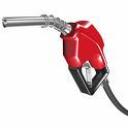January 16th, 2008 by Hal Moses
 A new law that took place last week in Minnesota requires a higher standard to dealerships selling vehicles advertised as “certified†used cars.
A new law that took place last week in Minnesota requires a higher standard to dealerships selling vehicles advertised as “certified†used cars.
In the past, a dealer might be able to explain certified many different ways, possibly withholding history or damage towards the vehicle. Under the new used car warranty law that is part of a “car owners’ bill of rights†passed last spring, state law requires, among other things, all certified used cars must go through a thorough inspection. All sales must include an auto warranty whether by the dealership or one of the many quality aftermarket auto warranty companies…
Besides defining “certified,†dealers now must make over 40-disclosure statements including whether a credit report was done in determining their ability to pay off their loan. These new requirements help restore a new car buyer’s faith in making their purchase.
Regardless of whether the vehicle is certified or not, used car warranties should be an essential part of any purchase.
January 16th, 2008 by Hal Moses
 Opportunities for some in the New Year means a new car or one that is new to them.
Opportunities for some in the New Year means a new car or one that is new to them.
Seems easy enough, but there are some things a consumer should consider, like his or her credit score. Some people are not aware of their credit score until they are ready to finance their new vehicle, leaving them having to seek other credit options. Customers with poor credit may have to go to “buy here, pay here’ lots to make their purchases.
Most financial institutions offer many aftermarket auto warranty programs along with financing and over the course of the loan can be very reasonable… Regardless whether the vehicle is financed or not, a good auto warranty  is essential for the life of your car.
January 14th, 2008 by Hal Moses
 One of our customers asked, does my car really need high grade gasoline?
One of our customers asked, does my car really need high grade gasoline?
With gas prices at near all time highs, people on tighter budgets want to know using lower octane fuel is OK. If you ask the gas station you’ll get different opinions. Some think that it does help a car’s engine to run better, but most think it just doesn’t matter.Â
After polling a group of automotive gurus, it appears that most of them believe that using a lower octane fuel does little or no damage to the car. The consensus is that even if it is not recommended by the manufacturer, you can probably get away with using a less expensive fuel.Â
A lower octane gasoline may cause a slight knock in the engine but it doesn’t necessarily mean the engine is struggling. The knocking is actually a more violent detonation of more explosive gasoline. The lower the octane, the more explosive, the louder the knocking.Â
Additionally, almost all cars marketed in the US over the past 10-15 years that operate with a fuel injection system have knock sensors. These sensors can sense when there’s lower octane fuel and adjust to it.Â
These more complex systems can be expensive to repair so an auto warranty is more necessary than ever. Used car warranties can be tricky so make sure you choose an aftermarket auto warranty that offers a close to bumper to bumper protection as possible.
January 11th, 2008 by Hal Moses
 When buying a new or used car, don’t just sign the contract that’s put in front of you. Make sure you ask some questions about all of the extras that are added on after you make the deal on the car. Fees like doc fees, financing fees, delivery fees, and fees related to used car warranties are not always justified.
When buying a new or used car, don’t just sign the contract that’s put in front of you. Make sure you ask some questions about all of the extras that are added on after you make the deal on the car. Fees like doc fees, financing fees, delivery fees, and fees related to used car warranties are not always justified.
A good auto warranty needs to be negotiated prior to taking your vehicle home. If you are told any fee is mandatory, make sure you question it and ask for proof.
January 11th, 2008 by Hal Moses
 Some major auto trade groups have taken the California Air Resources Board to court over a new regulation that would extend some warranties on vehicle emissions equipment. They claim it will cost members billions of dollars.
Some major auto trade groups have taken the California Air Resources Board to court over a new regulation that would extend some warranties on vehicle emissions equipment. They claim it will cost members billions of dollars.
The lawsuit, which was filed a week ago in California’s Superior Court, represents the aftermarket auto parts/service industry. Questioned is the rule recently approved that would extend the manufacturer’s warranties on emissions equipment to 10 years or 120,000 miles on new cars.
They claim that the regulation was designed to pressure automobile manufacturers into improving the quality of parts like catalytic converters & oxygen sensor. This will only turn over a large share of California’s annual service budget to dealer-owned shops. Some drivers have a longer warranty and argue that it will be more likely that dealers will get the repair work whether they are covered by a warranty or not.
Some aftermarket auto warranties actually offer coverage for the emissions systems as a surcharged add-on. This reinforces the reasoning that a good auto warranty is a basic necessity for new or used vehicles. Most new car warranties and used car warranties alike offer some type of coverage for a vehicle’s emissions system.
January 11th, 2008 by Hal Moses
 I keep getting cards in the mail telling me the warranty on my car is coming to an end. The funny thing is it expired over a year ago.
I keep getting cards in the mail telling me the warranty on my car is coming to an end. The funny thing is it expired over a year ago.
These post cards use scare tactics to make you think the vehicle manufacturer is giving you one final chance to extend coverage. The sad fact is that these cards have no attachment to the vehicle’s factory warranty whatsoever. As a matter of fact, the Attorney General has actually alerted the public recently that this was a growing problem.
One way to avoid this situation is to purchase an auto warranty from a reputable aftermarket auto warranty provider. One such company that has been around for almost 30 years is Auto Advantage Inc. in
Yorktown Heights, NY (
www.autowarranties.com). Regardless of what company you choose, it is always a good idea to check out the company with the Better Business Bureau.
January 10th, 2008 by Hal Moses
 Automobile owners worldwide desperately want the protection and coverage afforded by an auto warranty but don’t take the time to research the intricacies of their coverage and end up feeling slighted by finding out what they purchased is less than comprehensive then what they believed they were getting. It not a coincidence that most system failures your car or truck start to occur just after the manufacturer’s warranty expires so a comprehensive auto warranty is essential to avoid the sting of the high-priced repair bill bug. Â
Automobile owners worldwide desperately want the protection and coverage afforded by an auto warranty but don’t take the time to research the intricacies of their coverage and end up feeling slighted by finding out what they purchased is less than comprehensive then what they believed they were getting. It not a coincidence that most system failures your car or truck start to occur just after the manufacturer’s warranty expires so a comprehensive auto warranty is essential to avoid the sting of the high-priced repair bill bug. Â
When you buy an extended warranty for your vehicle you get the peace of mind of knowing that should there be a breakdown it can be repaired without cost to you. Also, you can bring the vehicle to the repair shop of your choice. Everyday driving can take a toll on your car and eventually the engine parts will begin to wear as well as many other parts of the vehicle. Having a comprehensive auto warranty will clear your mind not only during that frustrating time when your vehicle ceases to function, but more also before and after it has been repaired. Can you really afford to have your vehicle out of commission while you save up to have it repaired?
January 10th, 2008 by Hal Moses
 Back in the summer of 2007 one of my clients purchased a used Land Rover Discovery from a dealer. It came with a mechanical breakdown warranty issued by an aftermarket auto warranty company. On the date of purchase the car had 85,000 miles and 3,500 miles later it broke on the highway and had to get towed. The claim was called in to the company that issued the warranty in accordance with the contract terms. The vehicle was taken to a local dealer where the rear axle had to be broken down for inspection. The inspector advised that the damage was not a covered claim by the warranty because it was a wear & tear failure. The selling dealer insisted that the vehicle had no problems at the time of sale, so he could not be held liable for the cost of repairs. The repairs needed entailed replacing a seized rear differential following a bearing failure. The vehicle needed to get back on the road so the repairs were completed and the issue is now in small claims court.
Back in the summer of 2007 one of my clients purchased a used Land Rover Discovery from a dealer. It came with a mechanical breakdown warranty issued by an aftermarket auto warranty company. On the date of purchase the car had 85,000 miles and 3,500 miles later it broke on the highway and had to get towed. The claim was called in to the company that issued the warranty in accordance with the contract terms. The vehicle was taken to a local dealer where the rear axle had to be broken down for inspection. The inspector advised that the damage was not a covered claim by the warranty because it was a wear & tear failure. The selling dealer insisted that the vehicle had no problems at the time of sale, so he could not be held liable for the cost of repairs. The repairs needed entailed replacing a seized rear differential following a bearing failure. The vehicle needed to get back on the road so the repairs were completed and the issue is now in small claims court.
The moral of the story is when purchasing an auto warranty for your used car be sure that the plan is of the highest caliber. Read through the contract as some used car warranties leave much to be desired.
January 8th, 2008 by Hal Moses
 At one time or another every vehicle owner has been stuck on the side of the road or highway with a vehicle that has broken down. Faced with the fact that a large repair bill is imminently on the horizon this is not a happy time. To avoid this helpless feeling some people choose own auto warranties to protect their pocketbooks.
At one time or another every vehicle owner has been stuck on the side of the road or highway with a vehicle that has broken down. Faced with the fact that a large repair bill is imminently on the horizon this is not a happy time. To avoid this helpless feeling some people choose own auto warranties to protect their pocketbooks.
There are many companies in the market that offers different types of warranties. Below auto warranty tips on what a person should keep in mind when buying new car warranties or used car warranties.
First, inquire about the coverage that a warranty company provides. Get information about the warranties available in the market as different type of warranties cover different replacement parts. Some companies offer online information on auto warranties so the buyer can purchase the right plan for their vehicle. Some different types of coverage available are bumper-to-bumper, component, and powertrain type coverage.
With so many car warranty companies out there some are not of the highest quality. Companies claim to cover many parts but once bought, they deny many claims. This is why a buyer must research the company they choose carefully.
January 8th, 2008 by Hal Moses
 There is no doubt about it, vehicles are lasting longer these days. For instance industry representatives point out that in 2000 just over 28 percent of 15 year old vehicles are still on the road. In 2007, that number jumped to about 45 percent. This means there is a very good chance that most vehicles will be on the road far past their new car warranty.
There is no doubt about it, vehicles are lasting longer these days. For instance industry representatives point out that in 2000 just over 28 percent of 15 year old vehicles are still on the road. In 2007, that number jumped to about 45 percent. This means there is a very good chance that most vehicles will be on the road far past their new car warranty.
The need for a good used car warranty is now far more likely. There are numerous aftermarket auto warranty companies offering solid auto warranty options.
Perhaps at some point in the future auto manufacturers will catch up with the trend.
 A new law that took place last week in Minnesota requires a higher standard to dealerships selling vehicles advertised as “certified†used cars.
A new law that took place last week in Minnesota requires a higher standard to dealerships selling vehicles advertised as “certified†used cars.











